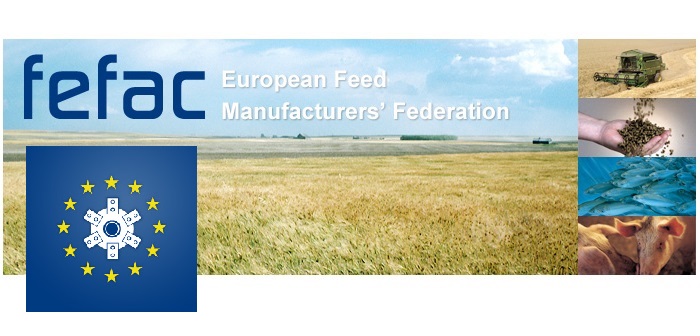Europe’s animal feed manufacturers have described 2015/16 as an “extraordinarily challenging year” for farmers, with the add-on message that the European Commission (EC) continues to fail the feed sector on a number of issues.
This judgement on the state of animal feed production in Europe is contained in the 2015/16 annual report published by FEFAC, the European animal feed industry body which represents approximately 4,000 European compound feed manufacturers.
“FEFAC expresses its solidarity with all livestock farmers who are being pushed to the edge in the (current) crisis,” commented FEFAC president, Ruud Tijssens, writing in the forward to the annual report, before turning to a substantial list of complaints against how the EC has behaved over the past 12 months.
“On numerous occasions we have called on the EC to take up its responsibility to remove non-tariff trade barriers that jeopardise access to competitively-priced feed supplies. It should be a political priority to alleviate pressure on already troubled livestock farmers. Unfortunately, we have witnessed political uncertainties that challenge the very foundation of the internal market.
“Despite the European Parliament rejection, the Commission has kept the ‘opt-out’ proposal for EU approved GMO food and feed events on the table, meaning disruption of the common market is still a potential outcome. We estimate that a political conclusion on the file could lead to a 10% increase in feed costs for EU livestock farmers in opt-out countries where GMO soya would need to be replaced with non-GMO soya. We have repeatedly stated that there is no need for this proposal as the feed industry already provides solutions to fulfil the demand for non-GMO feed through segregated supply chains.
“Next to that, the Commission continued to delay decisions on GMO food and feed import approvals, even though the EU Ombudsman in January 2016 judged that the Commission has been committing unjustified maladministration by not complying with the legal timescale requirements.
“It is of crucial importance that the EU feed and livestock sector remains competitive and continues to have access to global feed supplies to maintain market predictability as the basis for our livestock farmers so they can capture their fair share in very dynamic global markets for animal products.”
The president also promised, however, that FEFAC members will continue to fulfil their mission as a reliable, knowledge-driven partner to the livestock industry. This will include providing solutions to societal issues such as climate change and antimicrobial resistance.


